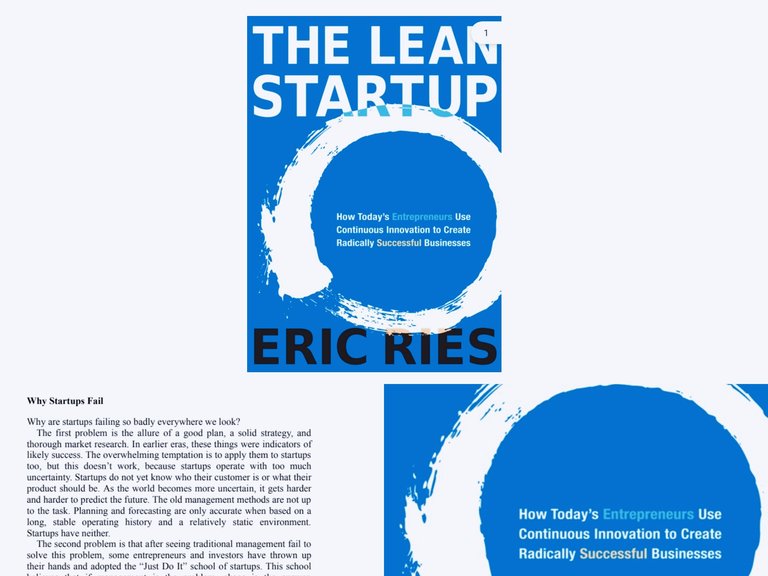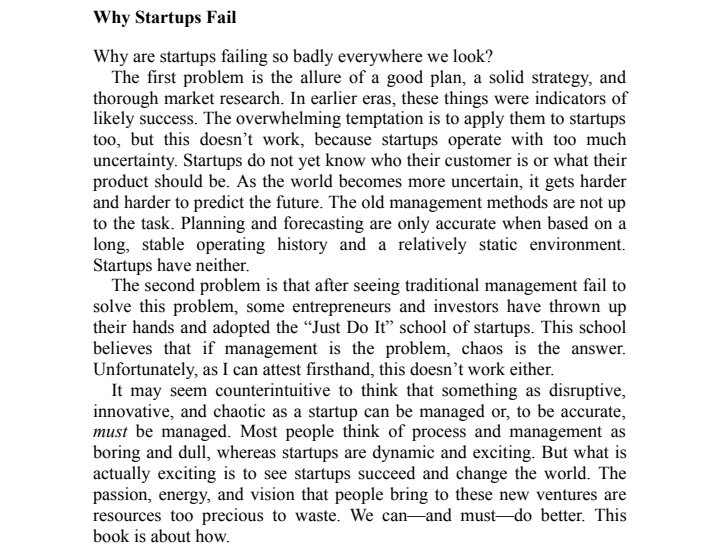
During my web development course last year, one of our assignments was to read, and summarize at least one book every week. As someone who naturally enjoys reading, I was genuinely excited......not untill I saw the book list. Most of them, if not all, were about business, startups, and entrepreneurship. Not exactly what I usually reach for when I'm looking for a good read, not so my kinda thing. One of those books was The Lean Startup by Eric Ries.
At first glance, I thought , "What does this even have to do with coding, and programming?" The language felt a bit heavy, filled with business terms and startup jargons. Honestly, I almost gave up in the first few pages. But something told me to keep going, and I'm glad i did.
Once I settled down and really gave the book a chance, my time, I started enjoying it more than I expected. Every chapter became more interesting than the last. In fact by the time I got halfway through, I found myself nodding, underlining lines, and even thinking of ways to apply the lessons in my own learning journey.
So, what is this book really about?
The Lean Startup is not your regular "how to start a business" guide. It is a practical book about how to build a startup that survives in the real world, especially in extreme and uncertain condition. Eric Ries draws from his own experience as an entrepreneur. He opens up about the many challenges him and his team faced while trying to build a successful company from a promising idea.
One thing he said in the introduction really stood out to me:
"Having an idea is just the first step. Making that idea real is a whole different journey"
And it is true. You can have a bright idea , but if you don't know how to start, take the right steps, or deal with the challenges along the way, that idea may never see the light of the day.
How the book is structured
The book is divided into three major parts.
Vision: This part explains what a startup really is and also talk about the foundation of the Lean Startup method. Eric Ries explains that startups are not smaller version of big companies, they are experiments in motion.
Steer: Here, he introduces the Build-Measure-Learn loop, a process where you build the smallest version of your product, measure how people use it, and learn from the feedback for improvement.
Accelerate: This part focuses on how to grow your startup once you have found something that works.
The part i enjoyed the most?
I really loved the chapter where he explains why so many startups fail. A lot of people think that having a great plan, a solid team, and smart strategies automatically guarantees success.Bit according to Ries, that's not the case when it comes to startups.

Startups operates in uncertainty. They are not like big companies that already know who their customers are, what their products should be, or how market works. Startups are still figuring all that out, and that is why thay can't rely on traditional business methods. They need flexible, fast and customer-centered approaches.
Reading The Lean Startup shifted my mindset. I started seeing the link between what I was learning in web development and the bigger picture of building products. You don't just build something because you can build it and you feel like it, you build it because people really need it.
This book is not just for business owners or startups founders. It is for anyone building something new, or any one building a solution, from content creators, developers, freelancers, to people working on passion projects.
The Lean Startup was one of the best books I read last year. It didn't just teach me about Startups, it taught me patience, flexibility, learning, and growth. It showed me that failure is not always bad, especially if you're learning from it.
If you are someone with big ideas, but not sure on how to turn them into reality, or of you are just curious about how successful startups are built, I highly recommend this book. It might seem intense, or even boring at first, but once you get into it, the lessons stick with you.
So yes, I went from "Why am i reading this?" to "I'm glad I read this." And that's always the best kind of surprise a book can give.